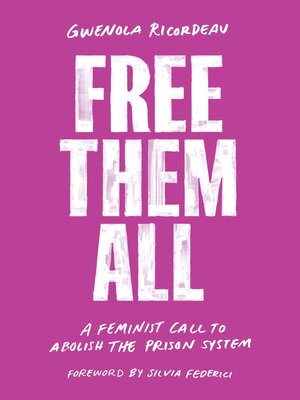
Sign up to save your library
With an OverDrive account, you can save your favorite libraries for at-a-glance information about availability. Find out more about OverDrive accounts.
Find this title in Libby, the library reading app by OverDrive.



Search for a digital library with this title
Title found at these libraries:
| Library Name | Distance |
|---|---|
| Loading... |
How does the criminal justice system affect women's lives? Do prisons keep women safe? Should feminists rely on policing and the law to achieve women's liberation?
The mainstream feminist movement has proposed "locking up the bad men," and called on prisons, the legal system, and the state to protect women from misogynist violence. This carceral approach to feminism, activist and scholar Gwenola Ricordeau argues, does not make women safer: it harms women, including victims of violence, and in particular people of color, poor people, and LGBTQ people.
In this scintillating, comprehensive study, Ricordeau draws from two decades as an abolitionist activist and scholar of the penal justice system to describe how the criminal justice system hurts women. Considering the position of survivors of violence, criminalized women, and women with criminalized relatives, Ricordeau charts a new path to emancipation without incarceration.
With a new foreword by Silvia Federici.
The mainstream feminist movement has proposed "locking up the bad men," and called on prisons, the legal system, and the state to protect women from misogynist violence. This carceral approach to feminism, activist and scholar Gwenola Ricordeau argues, does not make women safer: it harms women, including victims of violence, and in particular people of color, poor people, and LGBTQ people.
In this scintillating, comprehensive study, Ricordeau draws from two decades as an abolitionist activist and scholar of the penal justice system to describe how the criminal justice system hurts women. Considering the position of survivors of violence, criminalized women, and women with criminalized relatives, Ricordeau charts a new path to emancipation without incarceration.
With a new foreword by Silvia Federici.







